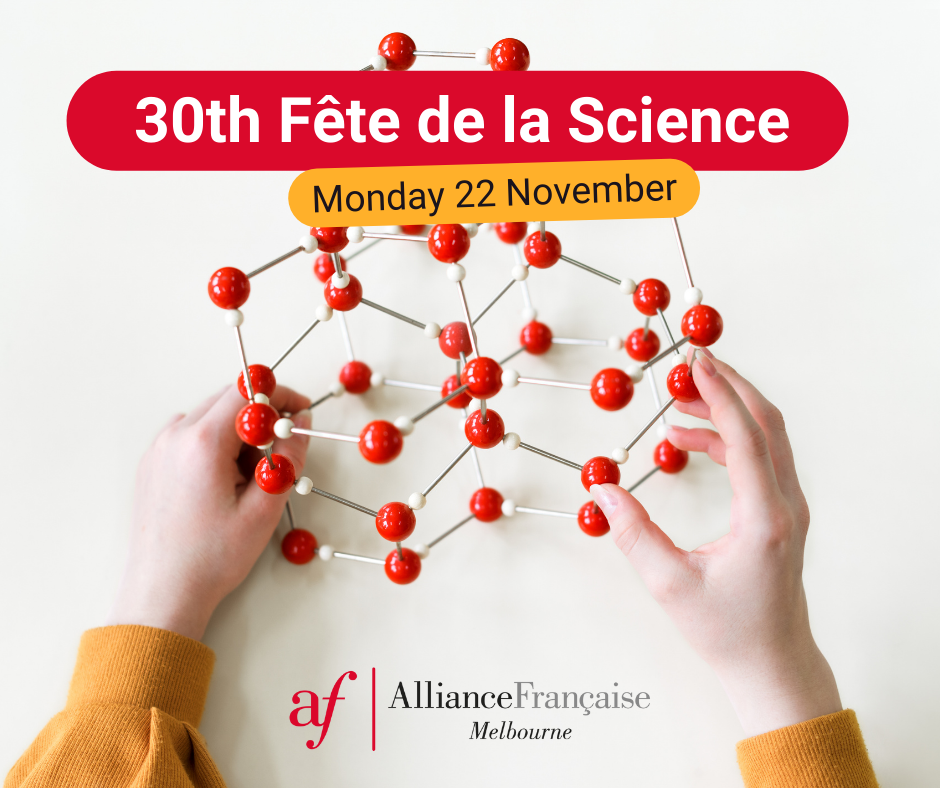The discussion – in English – will feature a mix of testimonies and shared experiences from French PhD students as well as both emerging and established French scientists currently working in Australia. We will discuss the benefits of being bi- lingual, how language can boost an international career and how languages shape the way we see the world and do research.
Dr Frédéric Hollande – Professor, Clinical Pathology, Victorian Comprehensive Cancer Centre (MODERATOR)
Fred obtained his PhD from the University of Montpellier and later worked as a post-doctoral research fellow at the Ludwig Institute for Cancer Research and the University of Melbourne. He was then recruited as a Research Fellow by CNRS in France to study molecular mechanisms that underlie the progression of colon cancer.
Fred moved to Australia in September 2012 to take up a position in the Department of Pathology at the University of Melbourne. He currently is Deputy Head at the Dept of Clinical Pathology. He is also the Graduate Research Coordinator and oversees teaching activities in the Department.
His research interests include the analysis of cancer stem cell regulation by their surrounding environment, as well as the study of the impact of inter and intra-tumour heterogeneity on metastatic progression and treatment response.
Dr Yvonne Durandet
Yvonne holds a PhD degree from the University of Adelaide and a Bachelor of Engineering from SUPMECA, France.
She is currently Associate Professor in the Department of Mechanical and Product Design Engineering, and Industry Research Coordinator in the School of Engineering at Swinburne University of Technology. She has extensive industry experience, and actively pursues industry-engaged projects for Teaching & Learning, and Research & Development.
Her research interests are in metallurgical and surface engineering, casting and solidification, welding and joining, laser processing of materials and net shape manufacturing processes such as additive manufacturing. She has over 80 publications in journals and conference proceedings related to Manufacturing Processes and Technologies, Metals and Alloys.
Prior to joining Swinburne, she was a Senior Research Engineer at BHP where she led strategic R&D projects on twin roll strip casting of steel, near net shape casting of non-ferrous metals, direct casting of steel wires and continuous hot dip metallic coatings of steel sheets.
Dr. Antoine Dujon
Dr Antoine Dujon is a scientist working as part of CANECEV, an international laboratory studying cancer and its evolution, a collaboration between France and Australia at Deakin University. His research focuses on two main topics, both using tools and concepts from ecology, the study of the relationships between living organisms, including humans, and their environment.
His first research topic aims to understand how human activities, for example, pollution or habitat degradation, increase the risk of wildlife species developing cancer and how this will affect their conservation. Dr Dujon works with species such as sea turtles, Tasmanian devils and marine bivalves, all currently experiencing cancer outbreaks impacting their health. His second research topic aims to understand how evolution shaped the various ways the human body defends itself against cancer.
Our current lifestyle is very different from what our ancestors experienced only a few decades ago, which is resulting in an increased risk of developing cancer. Understanding why will allow us to develop new prevention strategies and new therapies to reduce the negative effects of cancer on human populations. Dr Dujon’s research is therefore very pluri-disciplinary and requires him to regularly engage with both French and Australian scientists.
Noémie Friscourt
Noémie is a PhD candidate at the Institute for Marine and Antarctic Studies, a teaching and research institute of the University of Tasmania in Hobart, working on the ecology of the Antarctic fur seal. She is originally from the north of France, where she completed her bachelor in Ecology. After that, she went to Canada, where she graduated in Oceanography. There, she lived in the province of Québec, so there was no need to speak English (even if Québécois is kind of a new language for a French person!). She arrived in Tasmania at the end of 2019, her first “fully immersive” English experience. In Noémie’s words: “It is quite a challenge to live in a country where the people speak another language, but it is really rewarding!”
French is Noémie’s mother tongue. She learnt English and Spanish at school. However, as Noémie says: “Let’s be honest, the best way to learn a new language is to speak it regularly!”. Noémie has worked on international oceanographic expeditions and scientific conferences where she has had to communicate and collaborate (an important part of science!) in English. She has also worked as a marine observer on a Spanish fishing vessel and as a marine observer-coordinator with people from all around the Mediterranean basin (Italy, Spain, Croatia, Morocco, Algeria…). English and French have proved to be very useful.
Morgan Brisset
Morgan Brisset is a PhD Student at the University of Melbourne (Department of Clinical Pathology) and has been working in Australia for the past 18 months.
His PhD is a joint-PhD between the University of Melbourne and the University of Claude Bernard Lyon I in France. Morgan has a background in biochemistry (Bachelor), and in cancer biology (Master). His research focuses on the implications of dependence receptors in chemoresistance and stemness of colorectal metastatic cancer cells. His research is a drive to evaluate the efficacy of new treatments targeting dependence receptors for the therapy of metastatic cancer.
- Location
- Zoom
| Date | Time |
Add to Calendar |
|---|---|---|
| 22/11/21 | 2:00 am - 3:15 am |
Add to Calendar |

